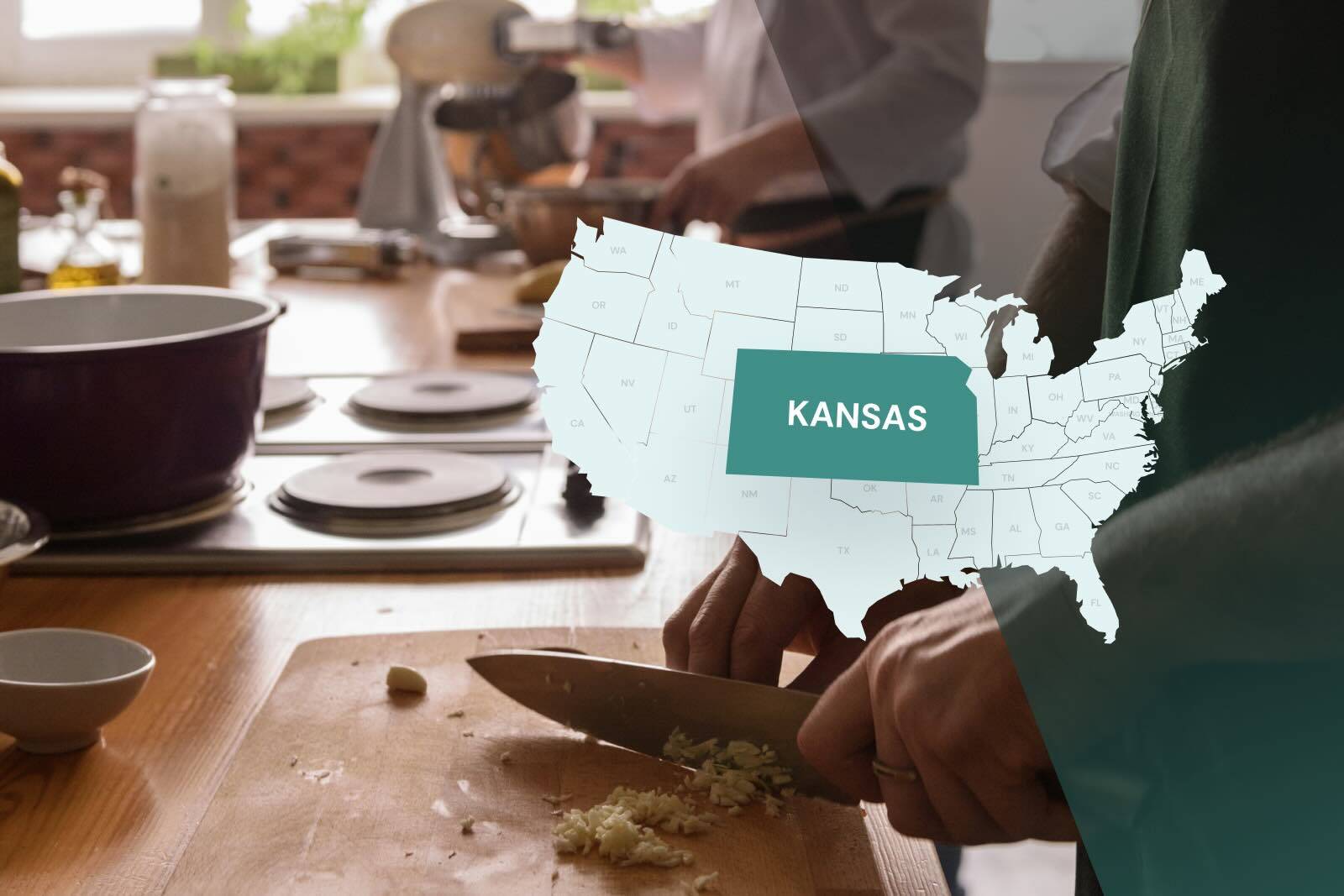Kansas City barbeque has helped Kansas make a name for itself nationwide. However, restaurants and other foodservice establishments could not keep serving up burnt ends, baked beans, and lemon pie without ensuring their food safety standards are up to snuff.
Estimates from the Centers for Disease Control (CDC) show that 53,300 people were hospitalized in 2019 because of a foodborne illness caused by one of the most common pathogens–thus, following food safety best practices is more important than ever.
The Kansas Department of Agriculture’s Food Safety and Lodging program works to protect public safety through the regulation and oversight of food establishments and processors in Kansas.
If you work in the food industry in Kansas, the first step to ensuring you stay in compliance is knowing the state’s training and certification requirements.
Read on to learn about Kansas’ food safety regulations, including:
Which version of the FDA Food Code does Kansas use?
Does Kansas require food handler training?
Does Kansas require allergen awareness training?
Does Kansas require food manager certification?
Which version of the FDA Food Code does Kansas use?
The U.S. Food and Drug Administration (FDA) Food Code sets national food safety recommendations that states, territories, counties, and cities can either adopt or adjust.
The FDA Food Code is updated every four years with input from industry experts, regulatory agencies, academics, and other professional organizations. As a result, it evolves alongside our understanding of food safety science. The FDA released a fully updated edition in 2022 and a supplemental update in November 2024.
In 2022, Kansas used the 2017 FDA Food Code as a model for the Kansas Food Code, and the changes went into effect in June 2023.1,2
Keep reading to learn what the 2017 FDA Food Code, and thus the Kansas Food Code, requires regarding training and certification.
Does Kansas require food handler training?
No, food handler certificate training is not required in Kansas.
However, every establishment’s person in charge must ensure their teams are properly trained in food safety. Formal food handler training can help operators and managers meet this requirement without investing their own time in holding training sessions for their staff.
Does Kansas require allergen awareness training?
No, formal food allergen awareness training is not required in Kansas.
However, allergen awareness is one of the topics in which the person in charge is required to ensure that staff are properly trained. Formal food allergy training can help ensure that everyone in an establishment knows about the nine most common allergens and how to prevent allergic reactions in customers.
Does Kansas require food manager certification?
Persons in charge are not required to become certified food protection managers in Kansas.3
However, a person in charge must be present during all hours of operation and able to demonstrate knowledge of how to prevent foodborne illnesses and apply HAACP principles, as well as the requirements of the Kansas Food Code, during an inspection.
While food protection manager certification is not required, earning credentials from an ANAB-CFP accredited program will demonstrate knowledge to the health department.
The takeaway
The Kansas legislature regularly reviews updates to the FDA Model Food Code to determine whether they need to update the Kansas Food Code. While the state does not require people working in food establishments to complete formal training or earn a food safety certification, persons in charge are responsible for ensuring they train all staff in food safety. Remember, a commitment to food safety best practices will protect your customers from the dangers of foodborne illnesses and your establishment from the consequences of a foodborne illness outbreak.
Sources:
-
FDA: 2017 Food Code
-
Kansas Department of Agriculture: Kansas 2022 Food Code
-
Kansas Department of Agriculture: Laws, Regulations, & Code for Food Safety & Lodging





.png)

.png)
